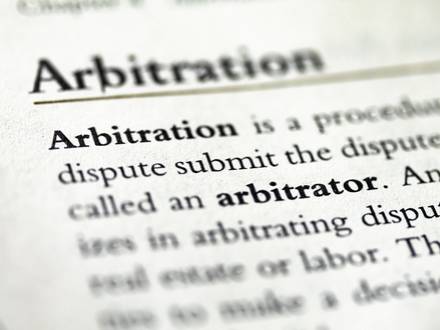Wheaton |
St. Charles |
Sycamore
 630-665-7300
630-665-7300
Has Forced Arbitration Ended for Workplace Sexual Assault?
 We are now years away from the beginning of the #MeToo movement that raised awareness of how often women experience sexual harassment in the workplace. Despite this, most women would say that workplace sexual harassment is still a serious concern. While both men and women can be sexually harassed in the workplace and sexually assaulted, 54 percent of women in the workplace will experience some level of sexual harassment.
We are now years away from the beginning of the #MeToo movement that raised awareness of how often women experience sexual harassment in the workplace. Despite this, most women would say that workplace sexual harassment is still a serious concern. While both men and women can be sexually harassed in the workplace and sexually assaulted, 54 percent of women in the workplace will experience some level of sexual harassment.
Even more alarming is that according to the women who have reported sexual harassment by a man in the workplace, 95 percent of those men went unpunished. An estimated 60 million workers across the United States who reported sexual harassment or sexual assault in the workplace have been subjected to forced arbitration.
When voluntary, arbitration can be a good system with positive results. When arbitration is mandatory, it is quite often lacking as an advantageous solution for the ordinary workplace and can force victims to give up their constitutional rights to confront their abuser in court. Some arbitration rules are downright unfair, leaving victims without the benefit of a jury.
Forced arbitration rules are changing for the better for those who have been sexually assaulted or suffered sexual harassment in the workplace. If you should find yourself in either of these situations, speaking to a knowledgeable Wheaton, IL, sexual harassment lawyer from Mirabella, Kincaid, Frederick & Mirabella, LLC can ensure you understand the court process and whether it offers a clear advantage over forced arbitration.
What Are the Two Types of Sexual Harassment in the Workplace?
Hostile work environment and quid pro quo are the two types of workplace sexual harassment. When a supervisor or other person in a position of power asks an employee to exchange sexual favors for a workplace benefit or to prevent an adverse work decision, this is quid pro quo.
A hostile work environment is any type of repetitive behavior that creates an intimidating workplace environment. This may include sexually suggestive comments and jokes, sharing inappropriate content with sexual connotations, any unwelcome sexual advances, inappropriate touching, and sexual assault.
Why Do Employers Favor Forced Arbitration?
Employers' advantage in requiring forced arbitration is that it significantly reduces their liability. The payout is typically much less, even when the employer is found liable. Perhaps even more important to employers is that a trial is public, while arbitration is done in secrecy.
This lack of transparency benefits employers while also benefitting the perpetrators of sexual harassment and sexual assault, as they are not publicly judged for their behavior. Although victims may still choose arbitration, they are not forced to do so. Ending forced arbitration for sexual harassment and sexual assault helps ensure that women's voices are heard when they speak up.
How Has Forced Arbitration Changed in Illinois and Across the United States?
In 2022, the Ending Forced Arbitration of Sexual Assault and Sexual Harassment Act (HR 4445) was signed into law. This federal Act amended the Federal Arbitration Act, allowing an employee alleging sexual assault or sexual harassment to invalidate a pre-dispute arbitration agreement.
Some states, including California, New York, New Jersey, Maryland, Vermont, and Illinois, already had laws in place at the state level that prohibited enforced arbitration agreements for sexual harassment and sexual assault claims, although the federal law added backbone to the state laws.
The Workplace Transparency Act in Illinois became effective on January 1, 2020. This Act prohibits mandatory arbitration provisions, including those that apply to sexual harassment and sexual assault, as well as other types of harassment and discrimination claims. While employers can still include mandatory arbitration claims in employee contracts, harassment and discrimination claims must be expressly excluded.
Contact a DuPage County, IL Sexual Harassment Lawyer
If you are the victim of sexual harassment in the workplace, you need a strong advocate in your corner who can help you through the process. A Wheaton, IL sexual harassment lawyer from Mirabella, Kincaid, Frederick & Mirabella, LLC has the necessary experience and knowledge to answer all your questions and present your options no matter what where you reside in Illinois. Call 630-665-7300 to schedule an initial attorney meeting.


 Read More
Read More





